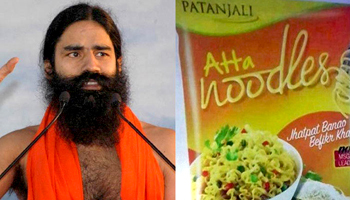Shivamogga, Feb 1: A three-year-old girl who fell out of a moving vehicle had a miraculous escape in Agumbe Ghat section in Teerthahalli taluk of Shivamogga district of Karnataka.
The incident took place in the early hours of Friday when 12 members from three different families were returning from a tour of Kerala and Tamil Nadu. The girl was reunited with her family after 30 minutes of high drama.
The child, identified as Anavi, is believed to have fallen from the vehicle as it negotiated hairpin bends on the Agumbe Ghat road, 350km from Bengaluru. The child's parents, Binu and Lincy, from NR Pura in Chikkamagaluru district, and other family members reportedly dozed off and did not realize the child had fallen off the vehicle until they covered a distance of about 20km.
One of the family members noticed that child was missing from the seat next to the door. When the driver realized the door latch had given way, they suspected the child could have slipped out of the vehicle.
Then the family started searching along the road and learnt from a forest guard at the Agumbe checkpost that a missing child was found and it had been handed over to Agumbe police station.
An advocate who identified himself as Vinay spotted the girl child as he passed the deserted stretch minutes after the vehicle left and picked her up and handed her over to Agumbe police.
The child sustained minor injuries in the fall. She was provided medical treatment before she was handed over to the parents.
Sources said it wasn't known how the vehicle door opened. One theory is that the girl could have accidentally unlocked the door while clutching the latch in the bumpy ride on the ghat. Police did not file any complaint.
Similar incident
This incident is almost a rerun of a Kerala incident in which a one-year-old baby fell off a moving jeep and was reunited with its mother hours later in September 2019 in Idukki district.
The baby had slipped off the mother's arms while she dozed off in the vehicle. CCTV footage showed the baby, after falling on the road, crawling towards a lit-up area close by, which turned out to be a forest checkpost. Family realised child was missing after 20km.







Comments
how standard can make out from his own pic.
Below Standard products of below standard person , Wa Kya Bath Hey!
Ban all his products
UGLY MAN , UGLY PRODUCTS....!
he is a dirtiest person, how his product became a pure its logic. taurine person........
Guyz, just look at him. How do u expect quality standards from him?
Anyway good luck Sanghis, you are unclean anyway, now u can grow more unclean and unhealthy... Jai #MoNa
They are using cow urine in to it....substandard....
Low standard man will obviously have low standard products.
Add new comment